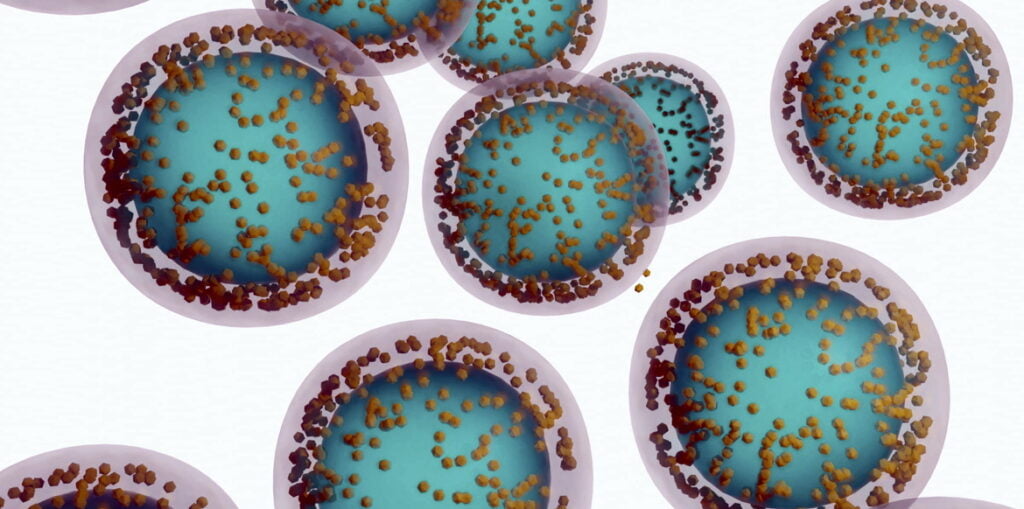Researchers say they can destroy cancerous tumors by injecting nanobubbles into the patient’s bloodstream – then exploding them.
The tiny bubbles – 2,500 times smaller than a single grain of salt – gather around the tumor and are then detonated by low frequency ultrasound waves.
A team at Tel Aviv University say they’ve tried the non-invasive procedure on an “animal model” – a mouse with breast cancer.
They now hope it could become an effective alternative to surgical removal of tumors in humans.
Dr. Tali Ilovitsh, of the university’s Department of Biomedical Engineering, said: “Our new technology makes it possible, in a relatively simple way, to inject nanobubbles into the bloodstream, which then congregate in the area of the cancerous tumor.
“After that, using a low-frequency ultrasound, we explode the nanobubbles, and thereby the tumor.”
The treatment can be used to effectively treat solid tumors deep within the body and is suitable for patients who are unfit for tumor resection surgery. The drawback, however, is that the heat and high intensity of the ultrasound waves may damage the tissues near the tumor.
Dr. Ilovitsh and her team hope that by injecting nanobubbles into the bloodstream, rather than the tumor itself, they can overcome this.
Sign up for our free weekly newsletter
Subscribe“Applying the low frequency to the nanobubbles causes their extreme swelling and explosion, even at low pressures,” she said.
“This makes it possible to perform the mechanical destruction of the tumors at low-pressure thresholds.
“Our method has the advantages of ultrasound, in that it is safe, cost-effective, and clinically available, and in addition, the use of nanobubbles facilitates the targeting of tumors because they can be observed with the help of ultrasound imaging.”
Keren Primor Cohen, CEO of Ramot, the university’s tech transfer company, applied for several patents to protect this technology and its application.
She said: “We believe in the commercial potential of this breakthrough technology in cancer treatment, and we are in contact with several leading companies in Israel and abroad to promote it.”
The researchers’ study has been published in the journal Nanoscale.
Related posts

Israeli AI Safety Tool Among TIME’S Best Inventions For 2024

TAU Team Discovers Mechanism To Eliminate Cancerous Tumors

Ashdod Port Investing In Startups As Part Of Innovation Strategy




Facebook comments